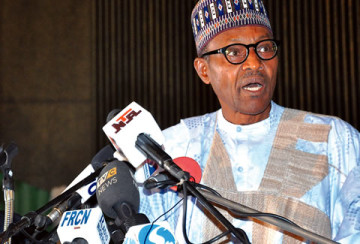By Ndidi Chukwu
As Nigeria joins the rest of the World to usher in the Sustainable Development Goals by the end of 2015, Civil Society for Family Planning in Nigeria has called on all Non-Governmental Organizations to create strategic advocacy plan to ensure that the goals will be met in Nigeria. Speaking at an advocacy workshop in Abuja, the National Coordinator of Civil Society for Family Planning in Nigeria (CiSFP), Wale Adeleye said “we now have a new government that is committed and talking about change, it is our responsibility to ensure that this change goes towards the right direction especially for reproductive health”
He expressed optimism that President Muhammadu Buhari will build on the gains recorded so far in the health sector and also help to redeem the many pledges the Nigerian government have made in the past for maternal and reproductive health issues. He said “We now feel that if we approach this government with information about these commitment; we can really get the change that we are clamoring for.”
On whether the Buhari government would redeem pledges made by the Jonathan government, he said that Jonathan made commitments in the area of security which Buhari came in and redeemed and they are towing
same line. “The president himself is a father and has wife and children and I know that if he understands what the commitment are all about, I don’t see him declining to support these commitments, especially now that the MDGs are past and we are welcoming the SDGs.”
Adeleye said advocacy for reproductive health should also capture child spacing through family planning,
“Family planning makes sense both in economic and social terms. When the mother healthy is healthy, every other member of the family would be health as well. That is why it is very key for every leader
Christian or Muslim to see the need for integrating the issue of family planning in the country,” he noted.
“When we are advocating for it in the ministry, there are people who sit on the files and people that speak against it. Even within the health sector, there are opposition but the most important thing is for us to prepare ourselves before we go there,” he added.
You will recall that in April 2001 at a meeting of African leaders in Abuja, Nigeria had pledged to support the Abuja Declaration and that at least 15 per cent of the government’s annual budget will be used to improve the health sector. Last year, the country only allotted 6.3 per cent of budget to health down from 8.2 per cent the previous year. There are many of such un-redeemed pledges in health like the Maputo Plan of Action to ensure universal access to reproductive health, the UN Every Woman Every Child- a commitment to save lives of women and children by 2015, the London Family Planning Summit- to mobilize contraceptive information, services and supplies and others.




